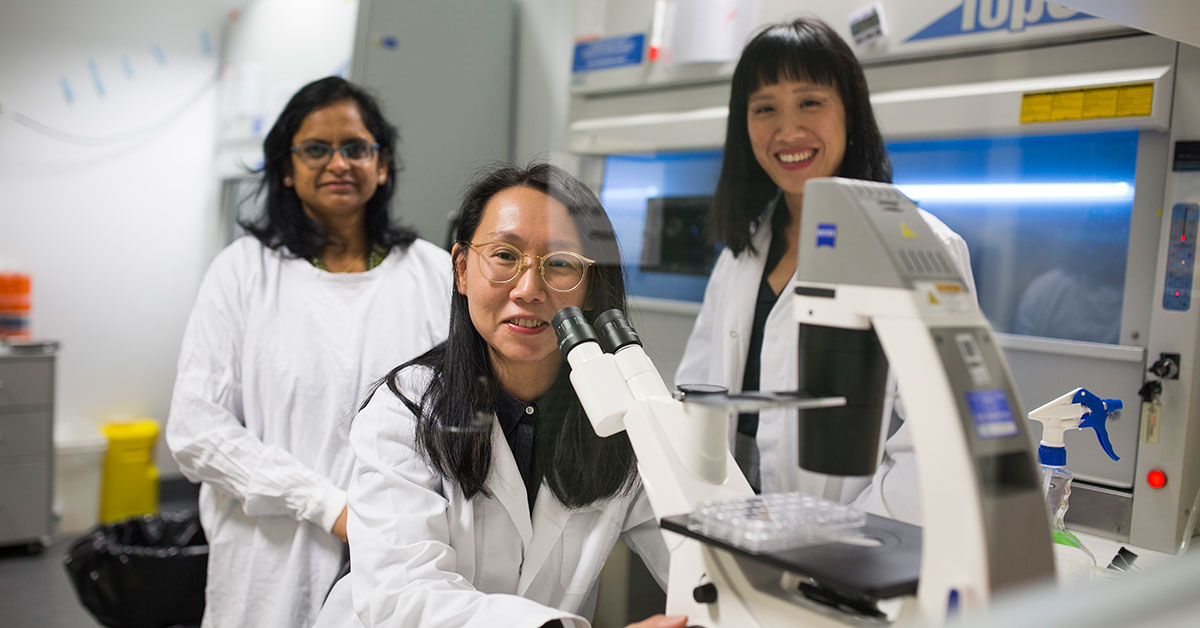News
Meet our researchers: Dr Elsa Chan
Dr Elsa Chan is a Research Fellow specialising in ocular antifibrosis. She is investigating novel therapies to reduce and treat ocular inflammation and scarring after eye surgery.
What drew you to a career in research?
I completed my PhD at the Department of Pharmacology, University of Melbourne, and my main motivation to pursue research was to find a cure for diseases.
I also liked the flexibility of research and being able to balance my time and invest in doing the things I was interested in, rather than the regular 9 to 5 job. When I was doing my post-doc, it was also exciting to travel to conferences and exchange ideas with researchers around the world.
What motivated you to follow vision research after originally starting in the cardiovascular area?
I was working with Professor Greg Dusting who also initially worked in cardiovascular research, and so when he started working with CERA we all changed our focus to look at similar mechanisms in the eye.
Now I work closely with several different researchers at CERA, particularly with Dr Jennifer Fan Gaskin, investigating ways to improve surgical outcomes after eye surgery and manage complications that can arise. It’s really rewarding to think our work can help achieve better treatments for patients.
What is the most interesting discovery you’ve made while researching ocular inflammation and scarring?
If we go back to my PhD, during my studies I was investigating a family of compounds called flavonoids. Flavonoids are found in a lot of fruits and vegetables, and because there is a lot of evidence suggesting that a healthy diet is good for heart disease, we wanted to investigate if flavonoids offer any protective effects, and we discovered that they do.
Later when we joined CERA, we revisited that work to see if the same compounds had any protective effects for ocular inflammation and fibrosis, and again we found that they do!

Why are translation projects important for research?
There are many great things that my team and other groups at CERA are working on in the lab that we hope will eventually turn into therapies for people to use, and that’s why commercialisation is so important. But if we want to translate research we need to have preclinical and clinical studies.
Recently, we’ve been working with CERA Board Director Professor Darren Kelly who has a lot of experience in commercialisation and an understanding of taking compounds from “bench to bedside.” Although the road to commercialisation can be long, it’s absolutely crucial if we want our research to make a real-life impact.
How would you like to see your research translate into clinical therapies?
I think I would like to see our research improve current surgery and therapy methods. For example, there are complications that can occur from scarring in the eye following glaucoma surgery. The current treatment for controlling scarring is cytotoxic, but it is the only method we have that works. We would like to completely replace that treatment with something new and non-cytotoxic.
We will continue to use experimental models to test therapies in the lab, and then hopefully secure funding to perfect those therapies for surgeons to use in order to improve outcomes for patients.
